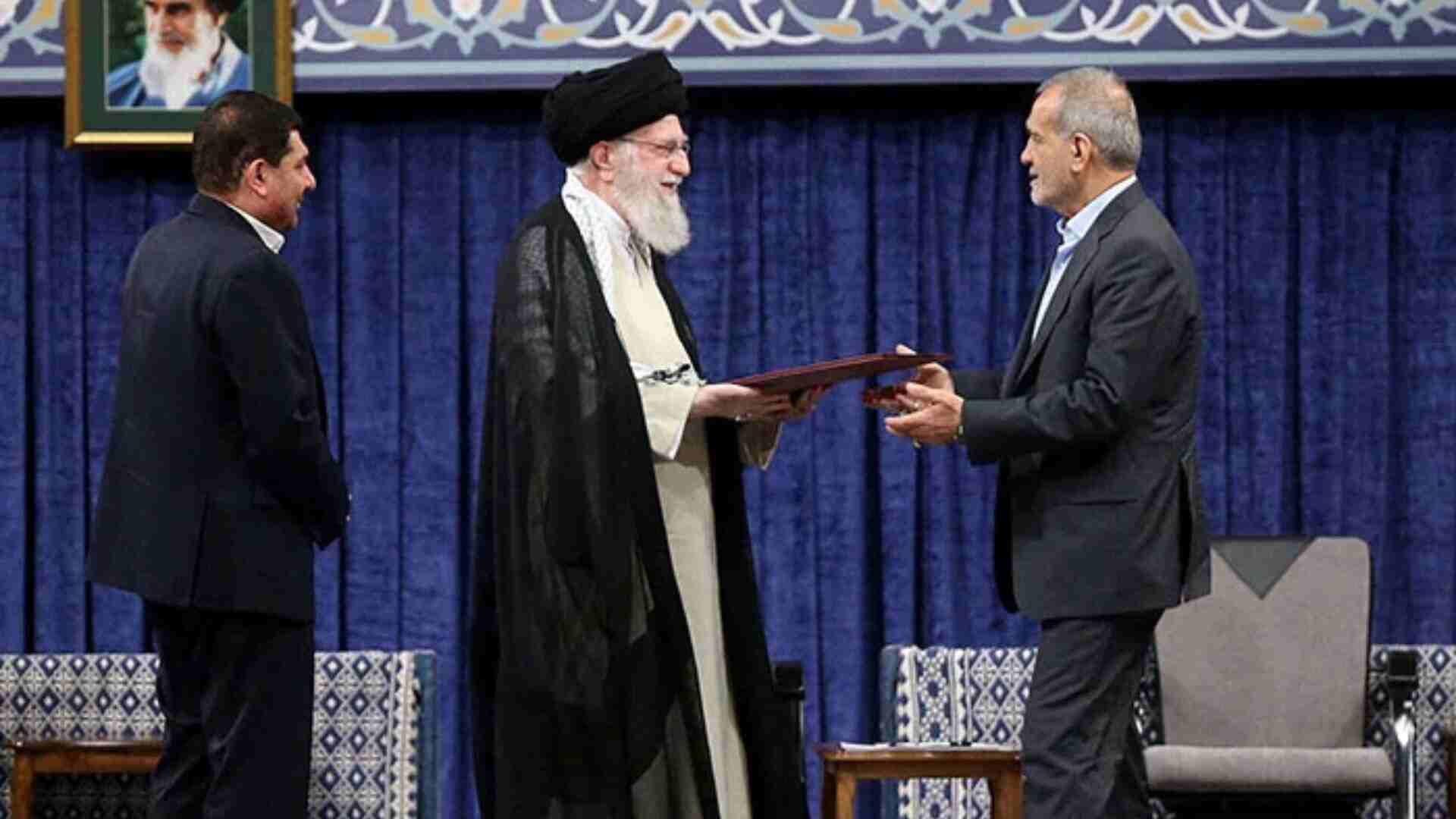
Iran’s supreme leader Ayatollah Ali Khamenei officially endorsed reformist Masoud Pezeshkian as the Islamic Republic’s ninth president on Sunday, following snap elections concluded earlier this month. The endorsement was conveyed through a message read by the director of Khamenei’s office, which stated, “I endorse the vote for the wise, honest, popular, and scholarly Mr. Pezeshkian, and I am appointing him as the president of the Islamic Republic of Iran.”
The endorsement ceremony took place in Tehran, attended by senior Iranian officials, foreign diplomats, and broadcasted on state TV. Pezeshkian is scheduled to be sworn in before parliament on Tuesday.
Election Victory
Pezeshkian secured the presidency by winning a runoff election on July 5 against ultraconservative Saeed Jalili, following the untimely death of former president Ebrahim Raisi in a helicopter crash in May. The 69-year-old reformist garnered more than 16 million votes, approximately 54 percent of the roughly 30 million ballots cast. Voter turnout for the runoff election was 49.8 percent, up from a record low of about 40 percent in the first round, according to Iran’s electoral authority.
A Unifying Ceremony
The endorsement ceremony saw the presence of Jalili and former moderate president Hassan Rouhani, who supported Pezeshkian’s presidential bid along with Iran’s main reformist coalition. Pezeshkian was the sole reformist candidate permitted to run in the election, with all contenders approved by the conservative-dominated Guardian Council.
Challenges Ahead
Despite his presidential role, the ultimate authority in Iran lies with the supreme leader, a position Khamenei has held for the past 35 years. Following his endorsement, Pezeshkian expressed gratitude to Khamenei and the Iranian people, pledging to shoulder the “heavy burden” of the presidency. His election comes amidst heightened regional tensions, disputes over Iran’s nuclear program, and domestic economic challenges exacerbated by sanctions.
Policy and Promises
On the campaign trail, Pezeshkian committed to reviving the 2015 nuclear deal with the United States and other world powers, which had imposed limits on Iran’s nuclear activities in exchange for sanctions relief. This deal collapsed in 2018 after the US withdrew. Pezeshkian recently advocated for “constructive relations” with European countries, despite accusing them of failing to mitigate the impact of US sanctions.
A heart surgeon by profession, Pezeshkian has represented the northwestern city of Tabriz in parliament since 2008. His presidency marks a significant moment for Iran’s reformist camp amid ongoing regional and domestic challenges.















